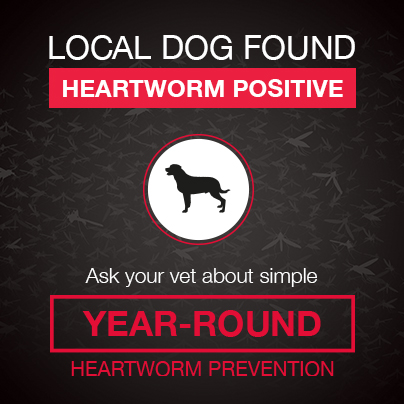We’re finally starting to see some warmer weather and most of us can’t wait to get outside – including our pets! While this is certainly a good thing – more time outside leads to better enrichment and exercise – it does come with its risks. While parasites are commonly seen by our vets all year-round, the increased warmth brings nasty internal and external parasites out in force. As our pets spend more time outside, they become increasingly at risk of becoming infested if not on a suitable preventative.
Which Parasites Concern My Pet?
Fleas, Ticks & Mites
Fleas, ticks, and mites are the most common external parasites found on dogs and cats, but they can also affect birds and pocket pets (guinea pigs, rabbits, mice etc.). More than just being annoying, they can be extremely contagious and cause disease and discomfort for animals – and people!
Did you know it can take as little as 7 seconds for flea pupae to hatch and jump onto a passing animal? They feed on blood and can quickly pass from animal to animal (and will even bite people given half a chance). One adult female flea can lay thousands of eggs in her life-time, meaning that the fleas you see crawling on your pet are about 5% of your infestation – 95% of the problem are the eggs and larval stages that live in the environment (i.e. your home). Read more…
Fleas can cause your pet to experience allergic reactions, skin irritation, and intense itching. They also transmit tapeworms (Dipylidium caninum). Luckily, fleas are simple to prevent and control when using monthly preventatives (e.g. Revolution, Frontline Plus, Nexgard) and surface sprays.
The biggest concern with ticks is the variety of diseases that they carry and transmit to both pets and humans. Lyme disease is one of the more common of these, with symptoms including fever, inflammation, and lameness. Other diseases include typhus, fever, and tick paralysis. In South Australia we don’t usually see paralysis ticks (Ixodes holocyclus), but they are common in the Eastern states so it’s important that your pet is on a tick prevention when travelling and/or camping. It’s also important to check your pets daily for any potential stow-aways. Read more on how to check for ticks…
Heartworm
Heartworm disease is an extremely serious condition and can be transmitted to dogs and cats via mosquito bite. These worms can infest and damage your pet’s heart and lungs and can be ultimately fatal if not treated early enough. Prevention is key to keeping your pet safe, and preventatives are easy and safe to use. Read more…
Intestinal Parasites
Regular worming is extremely important, but is often overlooked. Puppies and kittens are usually born with worms, contracted in-utero or via their mother’s milk, and should be dewormed every two weeks until 12 weeks of age. After this age, deworming should be done every three months for the rest of their life.
In Australia, dogs and cats can get infected with hookworms, roundworms, whip worm and tapeworm. The microscopic eggs and larvae can end up on pet’s feet from anywhere, and then they become infected when they lick and clean their feet. If your dog licks their bottom and then licks your or your child, or if your child pets your dog and doesn’t wash their hands, he or she can become infected with these parasites.
Cats get infected with hookworms, round worms and tapeworms by eating prey they’ve caught. Even indoor cats can have worms, if they ingest things like geckos, mice, insects, or fleas. Up to 50% of dogs and cats are thought to be carriers of gastrointestinal parasites.

